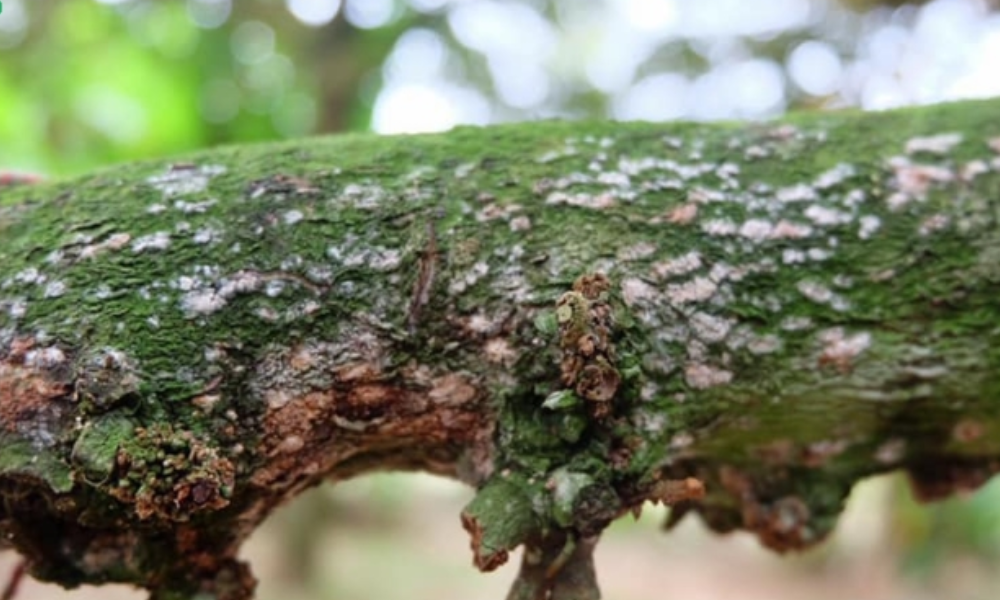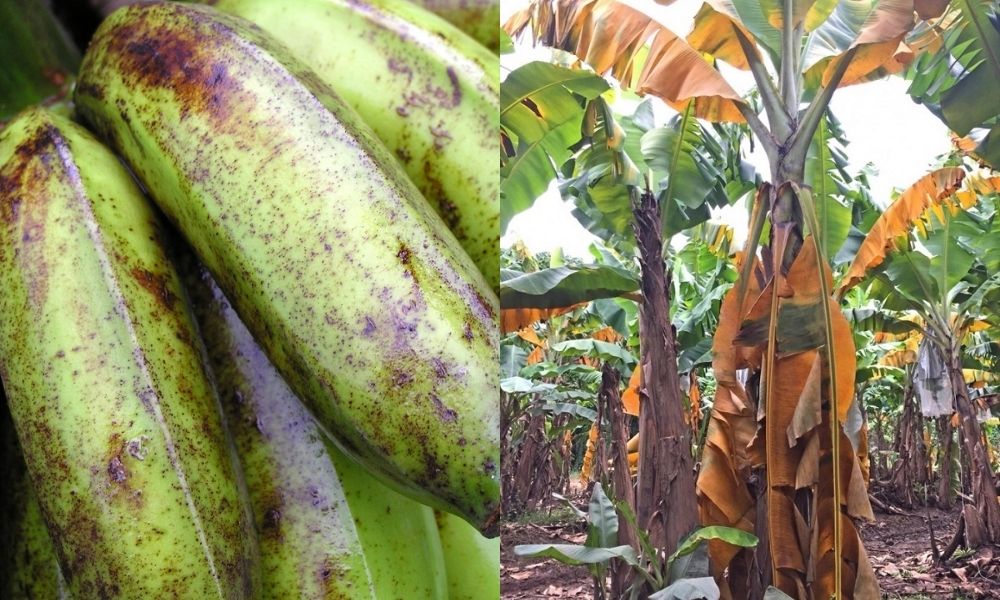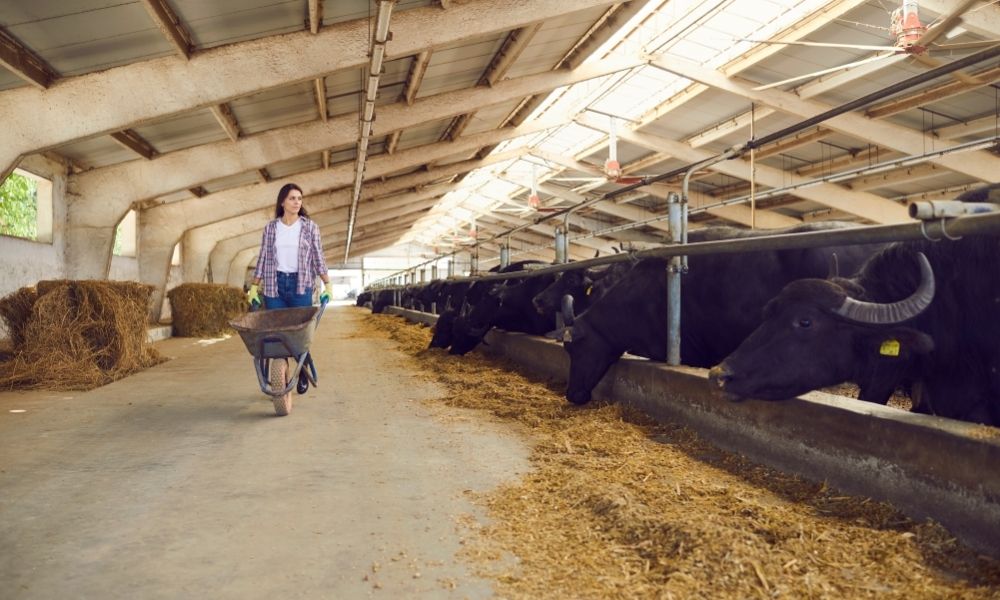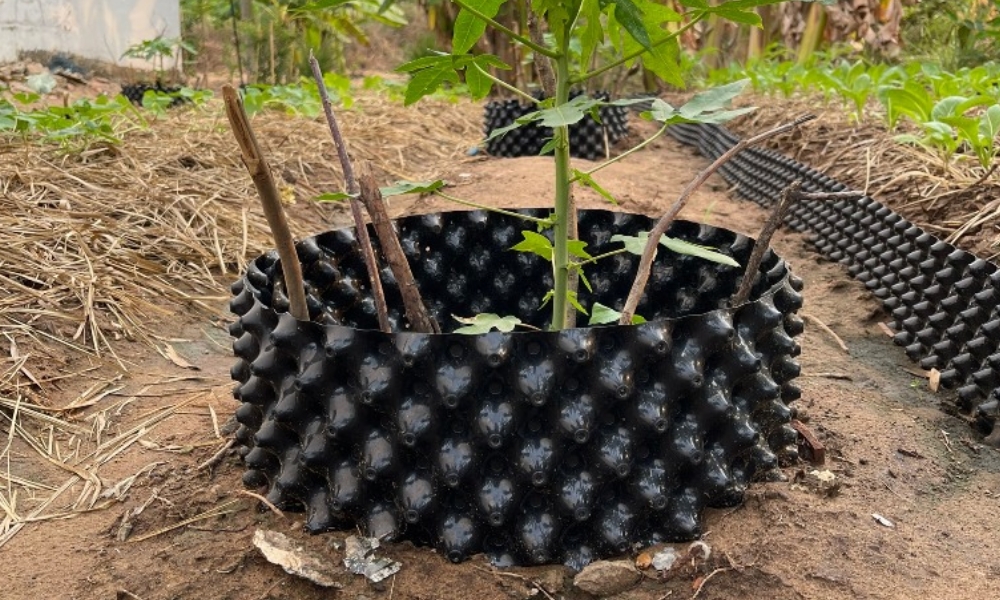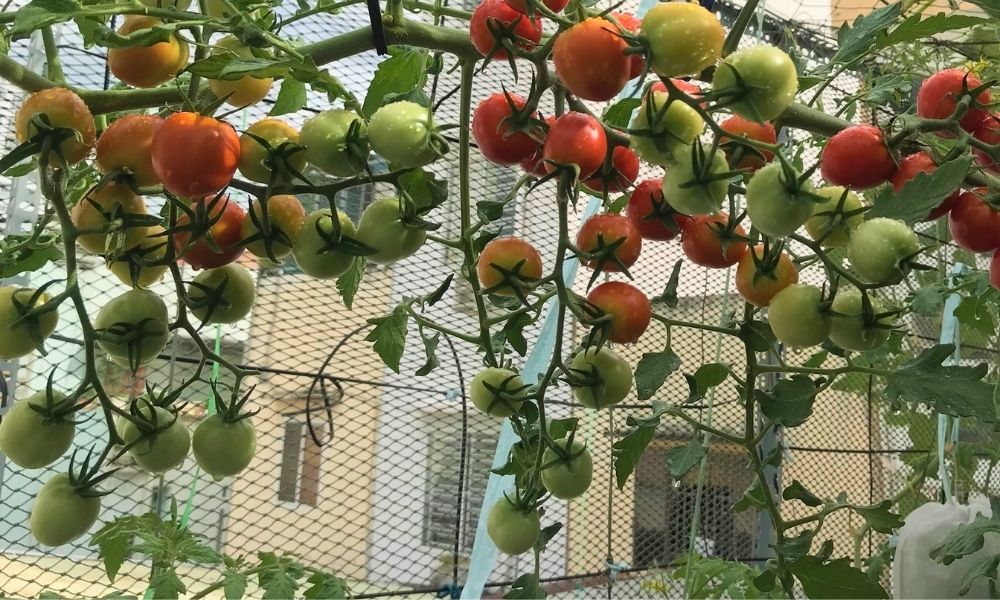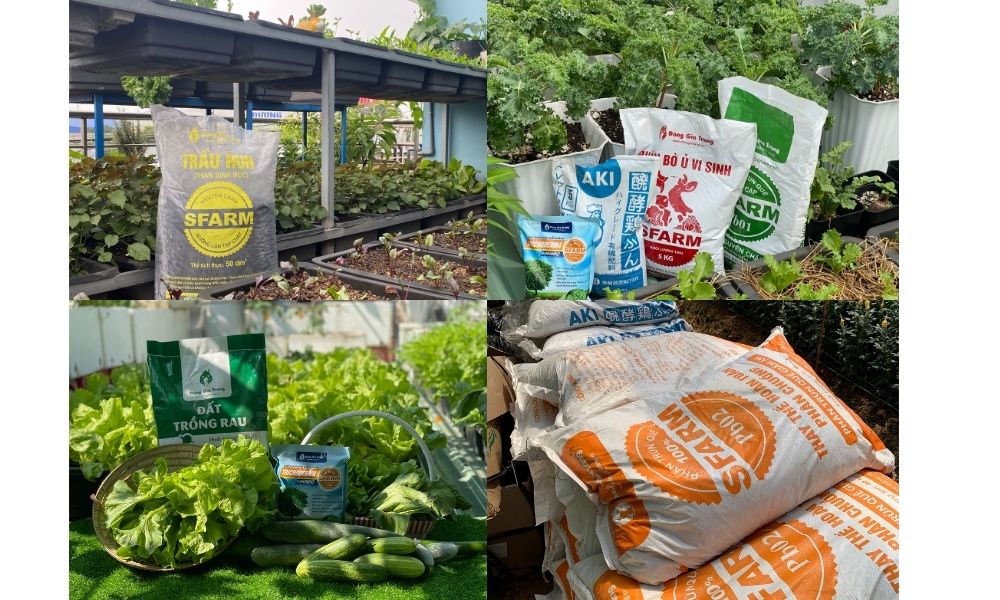Phân gà và những công dụng tuyệt vời đối với cây trồng
Chicken poop It is not only a rich source of nutrients but also helps improve soil effectively like organic chicken manure. Join Blog Kiến Thức Tổng Hợp Nông Nghệp to discover in detail the ingredients, uses and ways to use chicken manure to help plants grow sustainably and safely for the environment. Watch now!
What is chicken manure?
Chicken manure is an organic fertilizer made from chicken waste. This is one of the most popular and effective natural fertilizers in agriculture. Chicken manure contains many important nutrients such as nitrogen, potassium, phosphorus, calcium and other minerals, helping plants grow well, increase productivity and improve the quality of agricultural products.
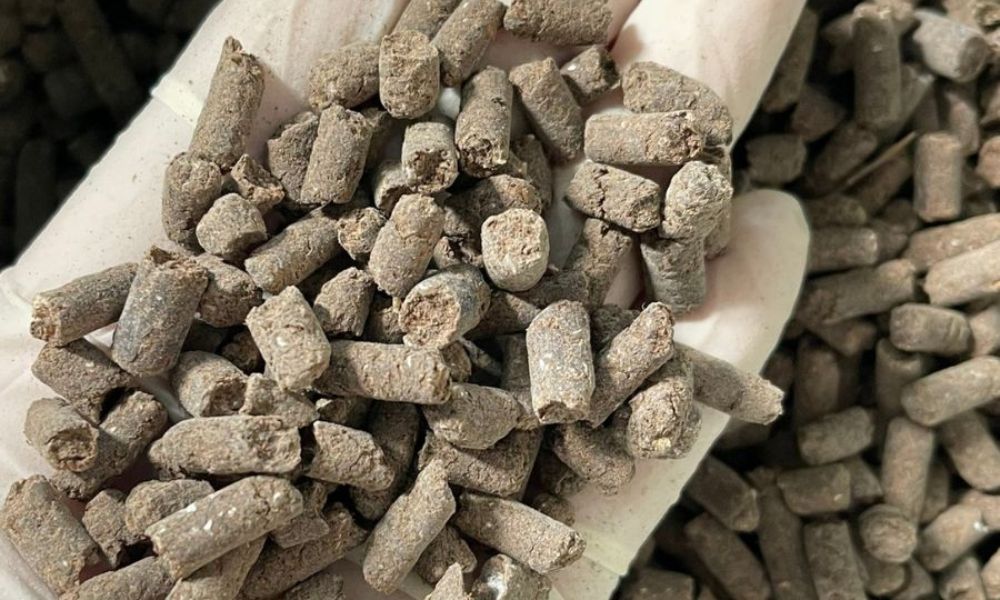 What is chicken manure?
What is chicken manure?
Composition of chicken manure
Chicken manure provides many important nutrients for plants such as nitrogen (N), phosphorus (P), potassium (K) and other minerals such as calcium, magnesium, sulfur, iron and zinc. Besides, chicken manure also contains organic substances such as humic, fulvic acids and fiber, which help improve the soil environment and support healthy plant growth.
Fresh chicken manure usually has a higher NPK content than dry chicken manure because it contains more water. Specifically, fresh chicken manure can contain about 4-5% nitrogen (N), 3-4% phosphorus (P), and 2-3% potassium (K).
Meanwhile, dried chicken manure usually has a more stable content, with about 2% for each main nutrient. However, these values may vary depending on the type of chicken and how the manure is handled.
| Kind of chicken manure | Nitrogen (N) | Phosphorus (P) | Potassium (K) |
| Fresh chicken manure | 4-5% | 3-4% | 2-3% |
| Dry chicken manure | 2% | 2% | 2% |
Factors affecting the quality of chicken manure
- Chicken breed: The quality of organic fertilizer depends on the type of chicken being raised.
- Time and preservation method: Storage time and storage conditions of chicken manure affect fertilizer quality.
- Production process: Chicken manure treatment steps play an important role in ensuring product quality.
- Humidity: The amount of water in fertilizer also impacts its effectiveness and quality.
- pH: The pH of chicken manure affects its ability to improve soil and plant growth.
- How to use: The effectiveness of organic fertilizers also depends on how you use them.
- Chicken raising environment: If the farming environment is not well hygienic, chicken manure may contain harmful chemicals or bacteria, reducing fertilizer quality.
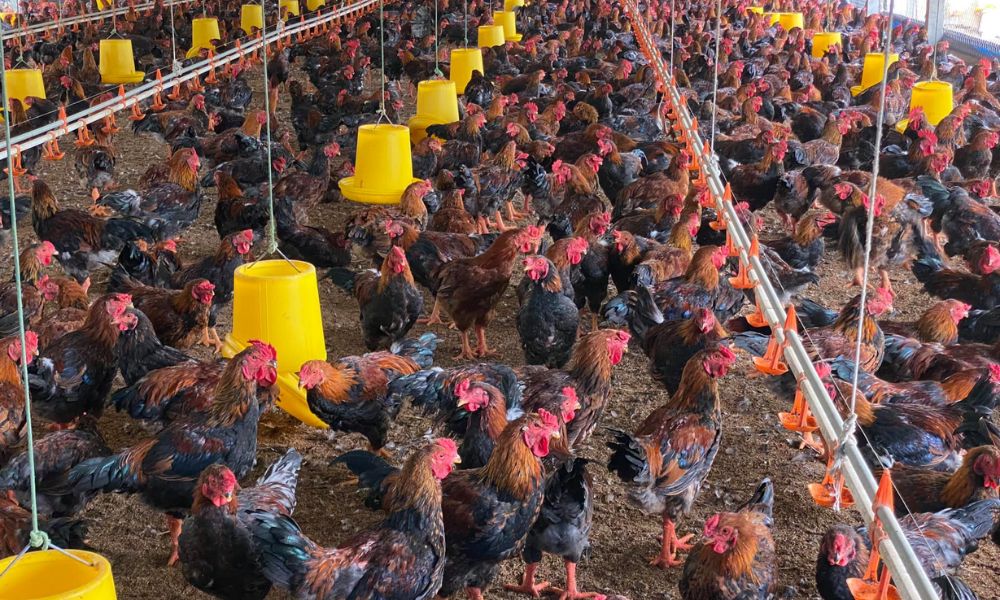 Chicken coops affect the quality of chicken manure
Chicken coops affect the quality of chicken manure
Chicken manure production process
The chicken manure production process begins with collecting and processing manure from poultry species. Manure is carefully classified to ensure quality and retain essential nutrients. Then, special probiotics and supplements are mixed in to enhance the value of the manure.
Chicken manure will be treated with infrared rays to heat and activate the microflora, helping the manure to completely decompose in just about 1 hour. Next, the feces are dried in cool conditions for 5-7 days to remove pathogens, then compressed into pellets. Finally, the manure is dried and packaged for storage and use.
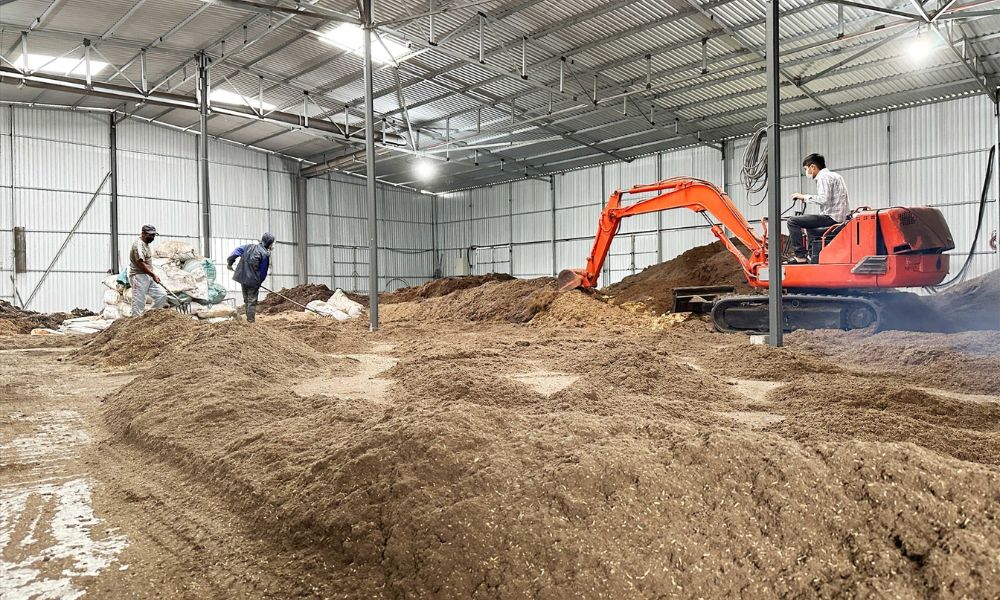 Chicken manure production process
Chicken manure production process
Uses of chicken manure for plants
Chicken manure is a popular natural fertilizer in agriculture, providing all the necessary nutrients for plants. Thanks to its outstanding benefits, chicken manure helps improve soil, increase productivity and improve the quality of agricultural products.
Chicken manure helps improve soil
Chicken manure helps the soil become fertile, reduces salinity, reduces acidity and retains moisture thanks to its high organic matter content. When applying chicken manure, microorganisms in the soil absorb nutrients, making the soil loose, with better drainage and increasing the ability to grow crops. Chicken manure also helps balance the pH of the soil, making it suitable for more crops.
In addition, beneficial microorganisms in chicken manure decompose organic matter, creating compounds such as humic and fulvic acids, which promote plant growth. At the same time, they also prevent harmful microorganisms, reduce the risk of plant diseases, and contribute to long-term improvement of soil quality.
Chicken manure helps increase productivity
Thanks to containing many nutrients such as nitrogen (N), phosphorus (P), and potassium (K), chicken manure helps plants grow strongly, increasing resistance and resistance to pests. These substances promote pollination and fruit set, and improve the quantity and quality of products when harvested.
Using chicken manure properly will help significantly increase crop productivity, bringing high economic benefits to farmers.
Improve the quality of agricultural products
Chicken manure not only helps plants grow but also makes the product have beautiful color, uniform size and better taste. This helps improve commercial value, provides better income for growers and ensures safety for consumers.
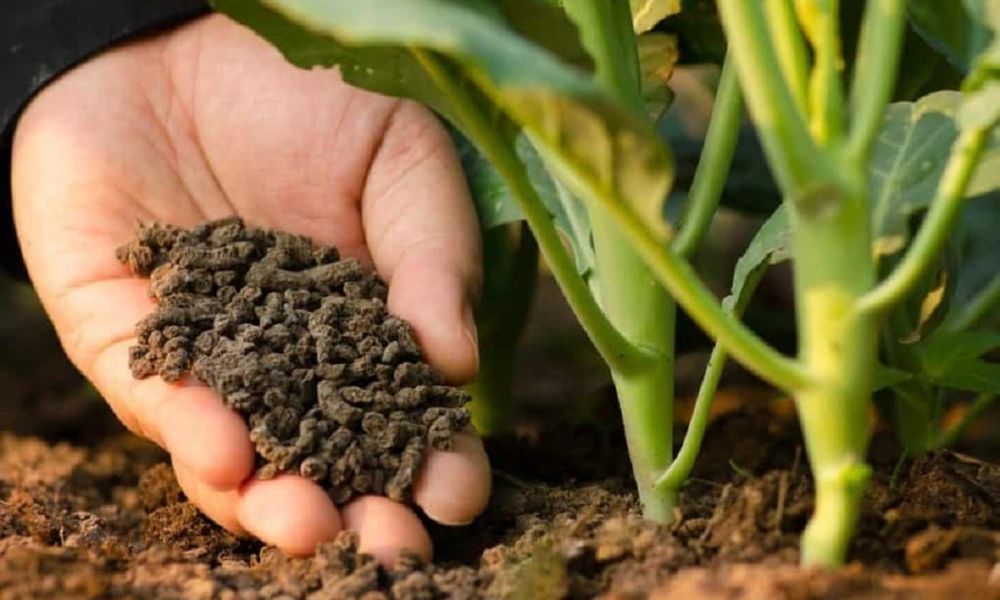 Uses of chicken manure for plants
Uses of chicken manure for plants
Differences of chicken manure compared to other types of manure
Chicken manure contains more protein than other types of manure such as cow manure, goat manure and pig manure, which have lower protein content.
Chicken manure is highly hot, if applied too much or not composted thoroughly, it can cause root burn or plant poisoning. Meanwhile, cow manure, goat manure and pig manure are cooler and less harmful to plants if applied in the right amount.
When heated, chicken manure has the ability to destroy weed seeds and pathogens. On the contrary, cow manure, goat manure and pig manure do not destroy pathogens and grass seeds on their own, so they need to be treated or filtered carefully before use.
Chicken manure is suitable for fertilizing fruit trees, flowers and industrial crops. Meanwhile, cow manure, goat manure and pig manure are more suitable for vegetables and top crops.
Risks when applying untreated chicken manure to plants
Although there are many benefits, chicken manure still has many potential risks,
Causes yellow leaves on some sensitive crops, making it difficult for plants to absorb nutrients because chicken manure is classified as hot manure.
Untreated chicken manure can cause a number of diseases in plants such as fungi and nematodes because the manure also contains many pathogens. Can destroy the entire roots of plants because when fungi and nematodes cling to plant roots, they will multiply quickly and spread over a large area.
5 ways to help compost chicken manure to fertilize plants
- Compost chicken manure to fertilize plants using the hot composting method
- Compost chicken manure to fertilize plants using the cold composting method
- Compost chicken manure to fertilize plants using a combination of hot and cold methods
- Compost chicken manure to fertilize plants with probiotics
- Composting chicken manure to fertilize plants using Japanese microbial fermentation technology
What is in the ingredients that make Blog Kiến Thức Tổng Hợp Nông Nghệp nutritionally rich organic chicken manure?
Produced from 100% pure chicken manure composted with microorganisms, the nutritional content of organic chicken manure is exceptionally high, including:
+ Organic matter: 45%
+ Nts: 2%
+ P2O5hh: 2%
+ K2Ohh: 2%
+ C/N ratio (organic matter decomposition rate): 12
+ pH: 5
+ Humidity: 30%
– 100% from Japanese chicken manure, clean of pathogens, no internal organs.
– Applying Japanese probiotic fermentation technology.
– Rich in Calcium and Potassium, increases plant resistance, limits some diseases that harm plants and roots.
Instructions on how to fertilize chicken manure for high yielding plants
Chicken manure fertilizes vegetable crops
– Primer fertilizer: 600 – 800kg/ha, and combined with other organic fertilizers (composted manure, vermicompost,…).
– Mix potting soil: 5 – 10% of the total soil substrate, should be combined with other organic fertilizers (composted manure, kitchen waste compost, earthworm compost,…) to increase crop quality.
– Top dressing: For long-term vegetables, vegetables are fertilized at 800 – 1000 kg/ha in the stage of preparation for flowering and fruit production. For street garden potted plants: 50g/pot (diameter 30cm).
Chicken manure fertilizes flowers and ornamental plants
– Fertilizer: 600 – 800kg/ha, and combined with other organic fertilizers (manure, vermicompost,…)
– Mix potting soil: Mix at a rate of 10 – 15% of the total amount of growing medium, can be combined with other organic fertilizers (composted manure, kitchen waste compost, earthworm compost,…) to increase crop quality
– Top dressing: During the flowering stages, additional fertilizer is needed in an amount corresponding to the condition of the plant. For street garden potted plants: 50g/pot (diameter 30 cm)
Chicken manure fertilizes fruit trees
– Fertilizer: 1 – 2kg/root, and combine with other organic fertilizers (composted manure, composted waste, vermicompost,…) to increase efficiency.
– Top dressing: 1.5 – 3 kg/root or depending on the type of tree, tree age, and soil condition, fertilize with the appropriate dosage.
Chicken manure fertilizes industrial crops
Short-term industrial crops (peanuts, sesame, jute, cotton…)
– For short-term industrial crops, only need to use fertilizer once before planting at a dosage of 1 – 1.5 tons/ha. In addition, it should be combined with other types of organic fertilizers (composted manure, vermicompost, etc.) to increase efficiency.
– For street garden potted plants: 50g/pot (diameter 30 cm).
Long-term industrial crops (coffee, tea, cocoa, pepper,…)
– Base fertilizer: 1 – 1.5 tons/ha, should be combined with other organic fertilizers (composted manure, vermicompost,…) to increase efficiency.
– Top-dressing: in the early stages of the buying season, after harvest, plants need high nutritional needs to recover and grow, additional fertilizer is needed at a dose of 1.5 – 2 tons/ha.
* Note:
– Depending on the type of plant, plant age, and soil condition, balance the dosage accordingly.
– Apply far from the root, moderate dosage, etc. to avoid damaging the roots and affecting the growth of the plant.
– Make sure to follow the recommended dosage on the packaging
– Do not use soil mixed with chicken manure as a seed growing medium because the heat generated from chicken manure can easily cause damage and rot, causing the seeds to lose their ability to germinate.
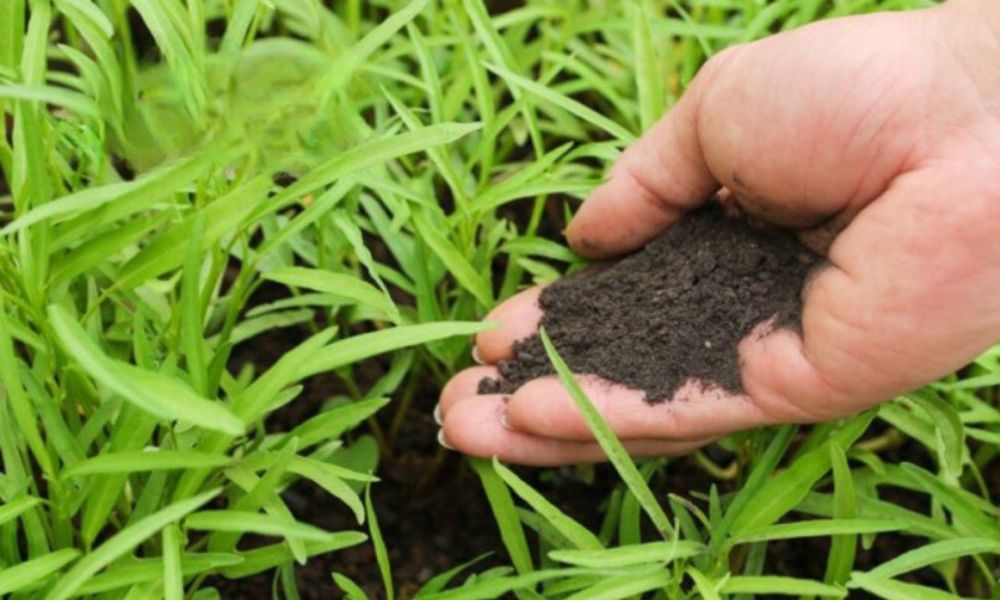 Instructions on how to fertilize chicken manure for high yielding plants
Instructions on how to fertilize chicken manure for high yielding plants
Is it possible to fertilize roses with chicken manure?
Chicken manure is extremely suitable as fertilizer for ornamental plants and roses. Chicken manure contains high levels of nutrients and is rich in potassium, so it will help roses bloom more, have large flower sizes, last a long time, and especially have very durable colors.
So what dosage of chicken manure should be used to fertilize rose plants to help the plants grow healthily and optimally?
Primer fertilizer
Mix soil with chicken manure at a ratio of 1:4, then water thoroughly, wait about 5-10 days for the microorganism to be improved before sowing seeds.
Top dressing
1 month after planting: apply 200g/root.
– Fertilize periodically: apply once every half a month, 200g/root/time. Fertilize in combination with other fertilizers.
– After pruning leaves, branches, and dead flowers: add 200g/root fertilizer.
– Before the bud budding stage, you need to increase potassium to help make the buds bigger and flowers more beautiful.
– Besides, add Trichoderma product to water the roots regularly to protect roses from root diseases, ensuring healthy plants throughout.
Japanese organic chicken fertilizer Aki – Pink blooms large, dark in color, and lasts a long time
– The process uses modern Japanese microbial fermentation technology.
– Provides abundant nutrients and a diverse microbial system to help plants grow and develop healthily, increasing their resistance to pests and diseases.
– High organic content helps make soil more porous and aerated, increases soil fertility, promotes root development and microbial activity in the soil.
– Increases flowering and fruiting ability, helps flowers have standard form, beautiful color, shiny and rich fruit.
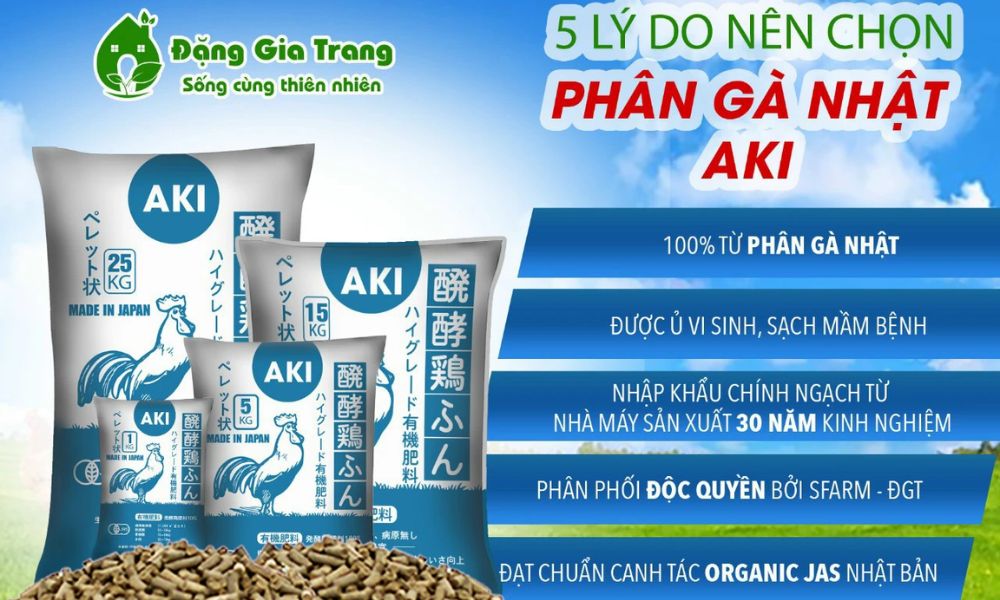 Japanese organic chicken fertilizer Aki – Pink blooms large, dark in color, and lasts a long time
Japanese organic chicken fertilizer Aki – Pink blooms large, dark in color, and lasts a long time
Chicken manure is a nutritious source of organic fertilizer, bringing many benefits to plants and effectively improving soil. Using the right techniques, you can optimize crop yield and quality in a safe, environmentally friendly way. Join Blog Kiến Thức Tổng Hợp Nông Nghệp to learn more solutions for plants at Blog Kiến Thức Tổng Hợp Nông Nghệp Blog now!
See more:
Blog Kiến Thức Tổng Hợp Nông Nghệp – Dang Gia Trang The honor is trusted supplier organic and biological agricultural input products from more than 1,500 agents and stores nationwide. Customers are invited to contact us with the following information so that the Blog Kiến Thức Tổng Hợp Nông Nghệp team can quickly support:
– Website: https://lol.edu.vn/
– Hotline: 0934 19 xxxx
– Zalo: Blog Kiến Thức Tổng Hợp Nông Nghệp customer service – 0934 19 xxxx
Chuyên mục: Kiến thức làm vườn
Nguồn: lol.edu.vn

 0934.19.6789
0934.19.6789
